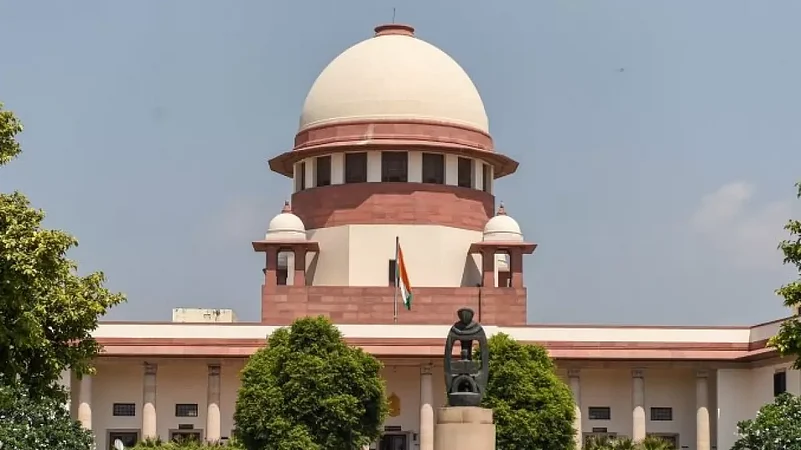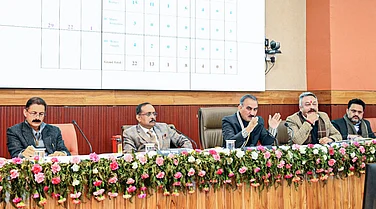The Supreme Court has laid down that a Governor cannot sit on key Bills passed by a State Legislature after casting doubts on the validity of the Assembly session in which the proposed laws were passed with overwhelming majority by the elected representatives of the people.
The SC settled the law in a writ petition filed by the Punjab government, represented by senior advocate A.M. Singhvi, complaining that Governor Banwarilal Purohit has held back crucial Bills on Sikh gurdwaras, the police and higher education passed in a special sitting of the Budget Session of the Vidhan Sabha on June 19 and June 20, 2023, Hindu reported.
SC warned the Governor that “you are playing with fire”.
The Apex Court directed him to take a decision on the long-pending Bills which have been presented to him for assent.
“Real power vests with the elected representatives of the people in a parliamentary form of democracy. The Governor, as an appointee of the President, is a titular head of the State. The Governor acts on the aid and advice of the Council of Ministers save in areas where the Constitution gives him discretion. The power to take decisions affecting the governance of the State or the nation is essentially entrusted to the elected arm of the state. Governor is intended to be a constitutional statesman guiding the government on matters of constitutional concern,” the court held.
Purohit had held back the Bills on the ground that the Speaker had adjourned the Budget Session of the House sine die in March without proroguing it. He refused to consider the proposed laws presented to him on the ground that the special Assembly sitting in which the Bills were passed in June was “patently illegal” and in breach of the practice and procedure under the Punjab Vidhan Sabha Rules.
The Governor, responding through his secretary, said the House had convened again in October to pass three Money Bills. Two of these Money Bills were recommended for introduction in the House after the State government moved the Supreme Court. One is still pending action with the Governor, who claimed that the October sitting convened by the Speaker was also illegal. He contended that it was not open for the Speaker to drag the Budget Session into the Monsoon Session.
The Governor said the Speaker had no authority to adjourn the House sine die in perpetuation without proroguing it. Adjourning sine die is an “interruption of one and the same session” while prorogation is a termination of the session. The Speaker adjourns the House. The Governor prorogues it.
The court however disagreed with Purohit’s claims, holding that the Speaker was well within his rights to adjourn the House.
“The Speaker, who has been recognised to be the guardian of the privilege of the House and constitutionally recognised authority who represents the House, was acting well within his jurisdiction in adjourning the House sine die,” the court concluded.
Chief Justice D.Y. Chandrachud, dictating the order in court, said it was the right of each House of Legislature to be the sole judge of the lawfulness of its own proceedings.




















.png?w=200&auto=format%2Ccompress&fit=max)





